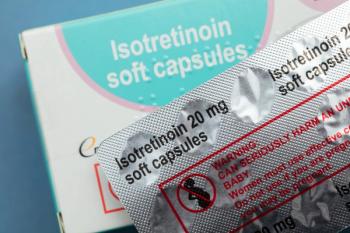
Does the FDA Accelerated Approval Designation Help Patients?
A significant number of drugs granted accelerated approval did not complete post-approval studies.
When many experimental drugs show the promise to treat a serious condition or fill an unmet clinical need, the FDA may grant expedited approval to ensure that patients can access the treatment sooner.
One pathway used is
To further understand this pathway, the authors of a study published by JAMA examined pre- and post-approval clinical trials for drugs granted accelerated approval between 2009 and 2013. During this time period, 22 drugs were granted the designation and 38 post-approval studies were conducted.
Interestingly, 3 years after the last approval, the authors found that only half of the mandated post-approval studies had been completed. Additionally, patient characteristics in pre- and post-approval studies were not greatly varied, which may not account for all patients who would take the drug.
"One might expect accelerated approval confirmatory trials to be much more rigorous than the pre-approval trials," said senior study author Aaron S. Kesselheim, MD, JD, MPH. "But we found that there were few differences in these key design features of the trials conducted before or after approval."
The authors discovered that the number of randomized or blinded studies did not differ and many post-approval studies relied on surrogate measures of effect, such as blood tests or radiological studies that may not be linked to clinical endpoints, according to the study.
In 17 of the 18 completed trials, the authors found that surrogate measures were the primary endpoints.
"It is important to use clinical endpoints in testing investigational drugs whenever possible because there are numerous cases of drugs approved on the basis of a surrogate measure that turn out to later not effect actual clinical outcomes -- or even make them worse," Dr Kesselheim said.
To address these issues, the authors suggest that the FDA should describe the limitations of pre-approval studies that must be addressed in additional studies to ensure there are no gaps in information that may be harmful to patients.
The FDA should also collaborate with manufacturers to ensure that the post-approval trials are designed in a way that will confirm the efficacy of the drug, according to the study.
“Among 22 drugs with 24 indications granted accelerated approval by the FDA in 2009-2013, 42% had efficacy confirmed in post-approval trials a minimum of 3 years after approval, although confirmatory trials and preapproval trials had similar design elements, including reliance on surrogate measures as outcomes,” the authors concluded.
Newsletter
Stay informed on drug updates, treatment guidelines, and pharmacy practice trends—subscribe to Pharmacy Times for weekly clinical insights.








































